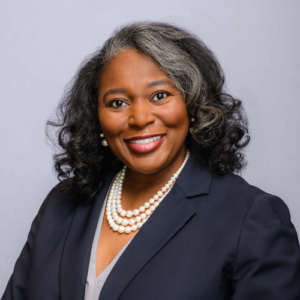America Must Recommit to a Learning Recovery Moonshot With High-Dosage Tutoring
Towns: Funding, curriculum integration and accountability are key areas for state and district leaders to focus on to get students back on track

Get stories like this delivered straight to your inbox. Sign up for The 74 Newsletter
Public education is at an inflection point in the campaign for learning recovery. The average eighth grader is an entire school year behind, according to national data, and students in underserved communities continue to face the biggest setbacks in the wake of COVID. Many students have regressed since 2021, even after returning to fully in-person learning, and studies show that pre-pandemic opportunity and achievement gaps have only been exacerbated.
In the first year of the pandemic, policymakers confronted an unprecedented national education crisis with an historic infusion of funding. Now, with those dollars set to expire and a crisis that may be deepening, I worry about the temptation to throw our hands up and say, “Oh well, we tried our best; it was just too hard.” And I worry that distractions — including divisive ideological debates — are diverting focus from students’ real and urgent needs. That must not happen. Instead, America must recommit to a learning recovery moonshot.
High-dosage tutoring is one of the most powerful tools available to help kids recover missed learning. While many schools have launched tutoring initiatives, only 1 in 10 students gets the dosage — the duration and consistency — required to see the learning gains that research has shown is possible. Barriers to implementation continue to limit expansion and impact, risking premature declarations that this personalized learning approach simply doesn’t work.
In reality, schools have yet to implement high-dosage tutoring effectively enough to credibly measure outcomes at scale.
Before joining Accelerate, I was a district leader in Tennessee’s Hamilton County and Georgia’s Gwinnett County schools during and after the pandemic. I witnessed COVID’s dramatic impact on educators and students. I understand how tough it is to get kids back on track. Teachers are constantly asked to do more with less, and they do. I continue to see their genuine effort in classrooms across the country in my current role.
A collective commitment by state and district leaders, policymakers and tutoring providers would make it easier for schools to implement effective learning recovery and avoid leaving a generation of students less prepared to succeed in life than their peers who happen to have the good fortune of graduating before the pandemic.
Accelerate has awarded grants to tutoring providers, states and districts implementing high-dosage tutoring. These grants have provided direct support to thousands of the students who need it most, and some of the recipients offer a roadmap toward our north star of scaling this successful approach.
Baltimore City Public Schools, for example, served over 15,000 students last school year, achieving an increase in attendance and dosage of 18% over the year prior. In 2023-24, the district expects to serve nearly 1 in 4 students through partnerships with external tutoring providers and a district-run program utilizing paraprofessionals.
Guilford County Public Schools reached a scale approaching 12,000 students, or one-fifth of total, twice the number served in 2021-22. The district implemented a data platform this year to ensure that students across their portfolio of university, community and school-run programs are getting the amount and frequency of tutoring needed to make a difference. Accelerate is partnering with Mathematica to release a forthcoming report on lessons learned, highlighting the school conditions necessary for high-dosage tutoring to thrive.
Implementation is hard, but it is possible.
Early analysis shows that our first cohort of Call to Effective Action grantees are successfully implementing programs in 28 states. Using a variety of creative approaches to overcome challenges, they are reaching a diverse group of students with the right dosage of tutoring.
If public schools are going to address learning loss in the face of daunting challenges, America needs to embrace the growth mindset that educators bring into the classroom every day. When kids say, “I’m just not a math person,” teachers know better. They encourage their students to make the effort and believe they will achieve. It’s time for national policy and education leaders to embrace that same sense of possibility and persistence.
On Dec. 6, the Aspen Economic Strategy Group hosted a livestream event, “Overcoming Pandemic Learning Loss,” where I joined a panel of leading scholars to discuss our perspectives on concrete policies to overcome pandemic learning loss.
Here’s are some critical points for state and district leaders and policymakers:
- Funding: As ESSER funding sunsets, policymakers must identify long-term funding streams that support tutoring. This includes reallocating other federal resources, as well as appropriating state and local funding for high-dosage tutoring and other evidence-based strategies to accelerate student learning.
- Integration: State and district leaders need to help schools make high-dosage tutoring a standard daily feature for students who are furthest behind. Aligning high-dosage tutoring with high-quality instructional materials and connecting it to current guidance on multi-tiered support systems will allow schools to prioritize this proven intervention. State agencies should lead in developing implementation tools and vetting tutoring programs/providers that are evidence-based, classroom-ready and scalable.
- Accountability: Schools need help getting students the 50 hours of tutoring that can recover the average four-month learning loss in a single school year. Policymakers must drive the creation of better data infrastructure for reporting and transparency around student attendance and dosage for tutoring. Districts and states can also leverage outcomes-based contracts for mutual accountability between schools and providers for implementation and results.
Educators know the stakes. Lifetime economic and health outcomes, particularly for the most vulnerable students, hang in the balance as the nation commits to a learning recovery moonshot. The challenges are real. But giving up on a whole generation of students is simply not acceptable. It’s up to all of us — families, business leaders, nonprofits, policymakers, educators and tutoring providers — to believe we can do it and then come together to make it happen.
Disclosure: Walton Family Foundation, Overdeck Family Foundation and the Bill & Melinda Gates Foundation provide financial support to Accelerate and The 74.
Get stories like these delivered straight to your inbox. Sign up for The 74 Newsletter

;)
